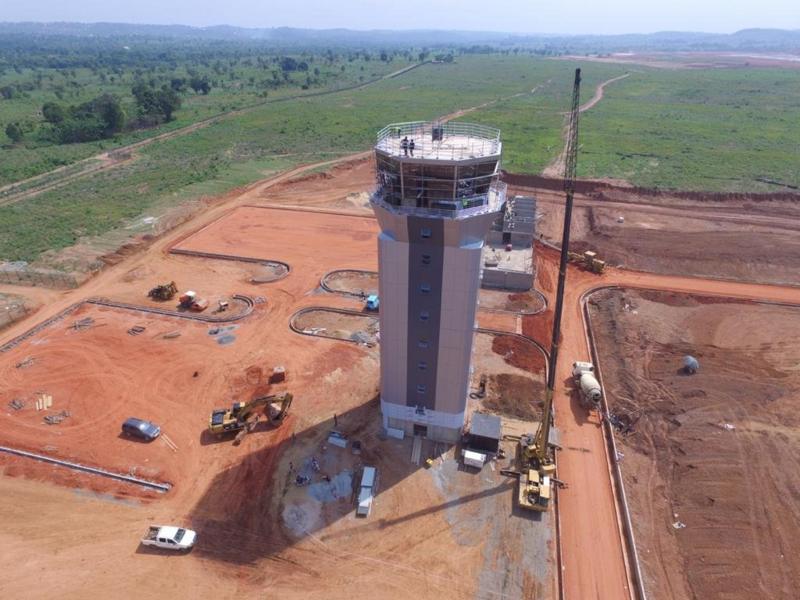Anambra State
States Dec 28, 2024 Last Modified:Jan 03, 2025

Table of Contents
- 1 Discovering the History and Cultural Significance of Anambra State, Nigeria
- 2 Geographical and Historical Background
- 3 Traditional Institutions and Ancient Kingdoms
- 4 Colonial Era and the Role of Anambra
- 5 Modern Day Anambra: A Blend of Tradition and Progress
- 6 Tourism and Historical Landmarks
- 7 Conclusion
Discovering the History and Cultural Significance of Anambra State, Nigeria
Anambra State, located in southeastern Nigeria, is a land steeped in history, culture, and tradition. Known as the “Light of the Nation,” it is one of the most historically significant regions in Nigeria. From ancient kingdoms to its role in modern Nigeria, Anambra State offers a fascinating glimpse into the country’s heritage.
Geographical and Historical Background

Anambra State was created on August 27, 1991, when the former Anambra State was divided into two parts: the present-day Anambra and Enugu States. The state is named after the Anambra River, a tributary of the Niger River. Anambra’s fertile lands, lush forests, and strategic location have made it a hub for trade and cultural exchange for centuries.
The region was historically home to the Igbo people, one of Nigeria’s largest ethnic groups. Archaeological evidence suggests that human settlement in this area dates back to prehistoric times, making it a vital component of Nigeria’s ancient history.
Traditional Institutions and Ancient Kingdoms
Anambra State is renowned for its ancient kingdoms and traditional institutions. Nri Kingdom, often regarded as the cradle of Igbo civilization, is one of the state’s most significant historical landmarks. The Nri people were known for their advanced social structures, religious practices, and governance systems.
The Nri Kingdom played a vital role in the unification of Igbo communities and the preservation of their cultural values. Its rulers, known as Eze Nri, were spiritual leaders and custodians of Igbo traditions. The influence of the Nri Kingdom extended far beyond the boundaries of Anambra, making it a key player in West African history.
Colonial Era and the Role of Anambra
During the colonial period, Anambra State emerged as a center of resistance against British rule. Prominent figures such as Nnamdi Azikiwe, Nigeria’s first president and a native of Onitsha in Anambra, played pivotal roles in the country’s fight for independence. Onitsha, a major commercial city in the state, became a hub for nationalist activities and intellectual discourse.
The Onitsha Market Literature, a genre of popular literature written in the 1950s and 1960s, originated here. These works provided a unique lens into the social and political climate of Anambra during the colonial era.
Modern Day Anambra: A Blend of Tradition and Progress
Today, Anambra State is a vibrant mix of tradition and modernity. Its cities, such as Awka (the state capital), Onitsha, and Nnewi, are centers of commerce, industry, and education. The state boasts numerous institutions of higher learning, including Nnamdi Azikiwe University, which is named in honor of one of its most illustrious sons.
Anambra is also famous for its cultural festivals, such as the Ofala Festival in Onitsha, which celebrates the Igbo people’s rich heritage and leadership traditions. The state’s residents continue to uphold their customs while embracing advancements in technology, infrastructure, and global commerce.
Tourism and Historical Landmarks
Anambra State is home to several historical and cultural landmarks that attract tourists from around the world. Some notable sites include:
- Ogbunike Caves: A UNESCO World Heritage Site candidate, these caves are a natural wonder and hold spiritual significance for the local people.
- Igbo-Ukwu Archaeological Sites: These sites have yielded some of the most exquisite bronze artifacts in West Africa, showcasing the advanced metallurgical skills of the ancient Igbo people.
- Onitsha Market: One of the largest markets in West Africa, it serves as a testament to the entrepreneurial spirit of the people of Anambra.
Conclusion
Anambra State is more than just a geographical location; it is a cultural and historical treasure trove that continues to shape Nigeria’s identity. From its ancient kingdoms to its modern achievements, the state represents the resilience, ingenuity, and rich heritage of the Igbo people. Whether you’re a history enthusiast or a curious traveler, Anambra State offers endless opportunities to explore and learn.
